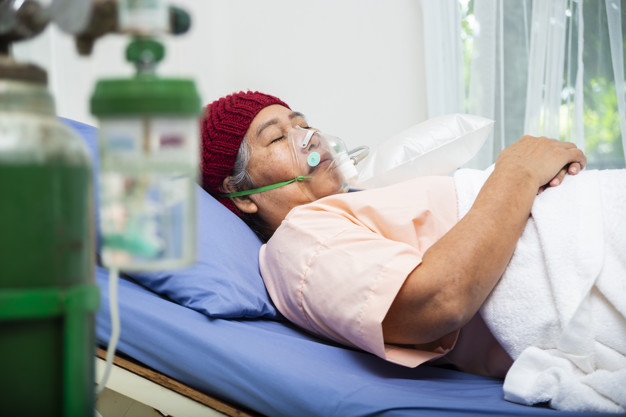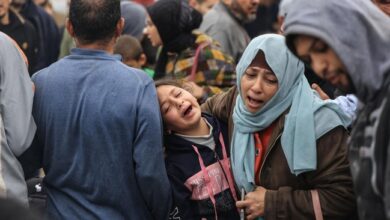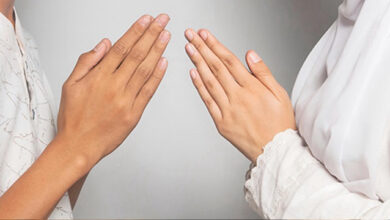Prayers for Seriously Sick People Like What?

DDHK. ORG – What is the prayer for the seriously ill like?
Peace be upon you, and Allah's mercy and blessings.
chaplain I want to ask, if someone who is sick in bed can't move, can't speak, and is half unconscious, what do you do? the prayer? Can it be replaced? fidyah or like what?
Thanks.
Greetings, Fulanah
ANSWER:
Peace be upon you and God's mercy and blessings be upon you
WL…
Prayer is an obligation on every Muslim who has aqil (reasonable) and baligh (until adulthood). The legal prayer is fardlu 'ain or obligatory for every individual Muslim and cannot be replaced or represented.
As long as the person is still alive, the obligation to pray will not be lost until he dies.
But sometimes even though a Muslim has reached puberty, he is not obliged to pray for several reasons. As the hadith of Ali bin Abi Talib radliyallãhu 'anhu, the Prophet sallallaahu 'alaihi wasallam said:
الْقَلَمُ لاَثَةٍ النَّائِمِ الصَّبِىِّ لِمَ الْمَجْنُونِ لَ (رواه داود الترمذي ابن اجه )
"The pen is lifted (released) from three groups: [1] the person who sleeps until he wakes up, [2] the child until a wet dream (baligh) and [3] the crazy person until he regains consciousness (sense)." (Narrated by Abu Dawud, Tirmidhi, Ibn Majah, & Ahmad)
The meaning of the pen being lifted is that their deeds are not written down. They are not burdened with orders, also if they commit sins as is done by people in general, such as people who are awake, mature, and sane or healthy in mind, then the three groups in the hadith above will not get sin and punishment.
Including if someone is sick, cannot do any activity including moving, and is already unconscious, then he is not burdened with doing the Shari'a including praying. Usually the term is named with a comma, so it can not respond to the surrounding circumstances.
Indeed, scholars differ on the issue of a person who is in a coma, whether he is confirmed (as an analogy) with a sleeping person or a person who has lost his mind.
Changing Prayers
Hanafiyah scholars are of the opinion, if you are in a coma or fainted for less than a day and a night, then this is confirmed by sleeping. So if he is conscious, he must make up his prayers. But if it is more than a day and a night, then he is not obliged to make up his prayers.
Malikiyah and Shafi'iyah scholars are of the opinion that fainting or coma is diqiyakan with loss of mind. So no matter how long, short or long, then the person is not obliged to make up his prayers.
While the Hanabilah scholars are of the opinion that coma or fainting is diqiyakan by sleeping, so that if he is conscious he must make up his prayers.
Then what if the coma has already died, are the heirs obliged to make up the prayer of the deceased?
If referring to the opinion of the jumhur (majority) of scholars, the heirs are not obliged to make up the prayers of their family who died of a coma.
However, if it refers to the opinion of the Hanabilah Scholars, then the heirs are obliged to make up prayers for the deceased. In fact, Al-'Abadi is narrated from As-Shafi'i because there is a hadith regarding this issue. In fact, As-Subki perform (qadla prayer) for some of his relatives.
Among the Hanafiyah scholars are of the opinion that it is permissible to give alms for prayers left by people who have died with the evidence of a hadith narrated by Ibn Abbas radiyallahu 'anhuma:
لَا لَا لِّي أَحَدٍ لَكِنْ (رواه النسائي)
"A person should not fast for another person and also not pray for another person, but (by) giving food (on behalf of that person)." (HR Nasa'i).
This hadith is considered weak because of mauquf (sanadnya stopped at a friend, namely Abdullah ibn Abbas radliyallahu 'anhuma)
Imam Sarkhasi rahimahullah Ta'ala in the book Al-Mabshut said: "If a person dies and has a prayer debt, then he is paid for each prayer half a sa' of wheat."
Muhammad bin Muqatil rahimahullah Ta'ala said: "Paid with food for each prayer of half a sha' as qiyas from fasting."
Their proof by giving food is to make up for the fast left by people who have died.
1 sha 'is the size of zakat fitrah in general. If half, then half of the size.
Among the Syafi'iyah scholars are of the opinion that the charity given is only 1 mud. The size of 1 mud is a quarter of the size of zakat fitrah.
Although there is an opinion that it is permissible to pay alms on behalf of a person who has died in exchange for the prayers he left behind during his life, a stronger and more careful opinion is that there is no alms in exchange for the prayers left behind.
Even if there is an opinion that allows it, it is an ijtihad of scholars, and even then it is not necessarily given to people who during their healthy and lazy life are even accustomed to leaving prayers until they fall into a coma and death picks them up.
Wallãhu a'lam
Hope it works!
Answered by Ustadz Very Setiawan.
#Friends of Migrants want to consult about Islamic religious issues and life issues? Come on, submit the question via WhatsApp message to number +852 52982419. [DDHK News]



